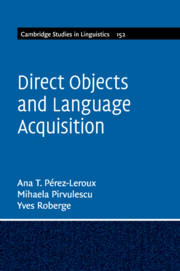This article argues that the realization of agreement in subjunctive andimperative verbs is a consequence of the syntactic status of Tense in these twomoods. Crucially, certain agreement paradigms across Romance languages show verya close resemblance: the subjunctive and imperative paradigms are identical, inmost cases, to the indicative paradigms. Systematically, moods such as thesubjunctive and the imperative do not show specific tense affixes or specifictense-induced allomorphy on their agreement affixes. The proposal is illustratedwith Romanian verbal agreement, which is analyzed within the DistributedMorphology framework. The analysis shows that tense information is not used insubjunctive and imperative agreement morphology, unless it is exactly the sameinformation as in another paradigm — the present indicative. It isproposed that at the syntactic level, Tense is unspecified in the subjunctiveand absent in the imperative, and that the realization of agreement affixes is aconsequence of this syntactic representation.
